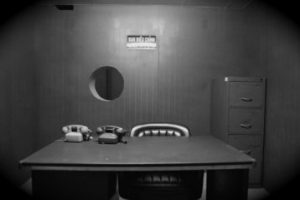 Everybody knows that if you are arrested and charged with a Retail Theft, or Shoplifting, you will be facing serious criminal penalties that could have serious implications for your future. How many people are surprised to find out that in addition to the criminal implications of a Retail Theft, they will probably soon be facing a potential Civil Penalty. This part of a Retail Theft arrest is not well understood by clients. Many clients mistakenly believe that what happens in one aspect of a Retail Theft case will affect the other aspect of the Retail Theft case. In other words, many people believe that if they just pay the Civil Penalty then the criminal case will be dismissed. This is not how things work and people need to understand what the Civil Penalty is and how it relates to a Retail Theft.
Everybody knows that if you are arrested and charged with a Retail Theft, or Shoplifting, you will be facing serious criminal penalties that could have serious implications for your future. How many people are surprised to find out that in addition to the criminal implications of a Retail Theft, they will probably soon be facing a potential Civil Penalty. This part of a Retail Theft arrest is not well understood by clients. Many clients mistakenly believe that what happens in one aspect of a Retail Theft case will affect the other aspect of the Retail Theft case. In other words, many people believe that if they just pay the Civil Penalty then the criminal case will be dismissed. This is not how things work and people need to understand what the Civil Penalty is and how it relates to a Retail Theft.
Most people charged with a Retail Theft will be facing a Class A Misdemeanor. The potential penalty for a Retail Theft depends on the value of the item(s) that you stole, or attempted to steal. The cut-off between a Misdemeanor and a Felony officially is $300. If the aggregate value of the items is $300 or less, you will be charged with a Misdemeanor. If the aggregate value of the item(s) is $300 or more, you may be charged with a Felony. A Class A Misdemeanor conviction for a Retail Theft carries a maximum punishment of up to one year in county jail and a maximum fine of $2,500. Most Felony Retail Theft charges are Class 4 Felonies in Illinois. A Class 4 Felony charge for Retail Theft in Illinois carries a maximum punishment of one to three years in prison and a maximum fine of $25,000.
In the past few years I have seen a drastic increase in the number of Retail Theft cases charged as a Municipal Ordinance Violations. Almost every City, Town, and Village has set up a Municipal Violation court system that moves cases from the County Criminal Court to an Administrative Municipal Ordinance Violation Court that is controlled by the Town or the Village in which the offense occurred. The Judge who presides over the case is an Administrative Law Judge who is employed by the municipality. Many times the Administrative Law is a full-time employee of the town. The standard of proof in a Municipal Court is much lower than in a Criminal Court. A Municipal Ordinance Violation is a civil matter between you and the municipality. The Rules of Evidence are relaxed and the penalties that can be imposed by an Administrative Law Judge in a Municipal Court are civil in nature. In other words, the penalties are monetary as opposed to Criminal. However, depending on the County, the Town, and the facts and circumstances of your arrest, the Municipal Ordinance Violation may appear in a background search. If you were fingerprinted, your Retail Theft may appear in a background search. Some Counties will put your case in the Court computer system which could be found in a background search. Many employers will not hire someone if they suspect that the prospective employee may steal from them. Therefore, it is imperative that you consult with an experienced Retail Theft lawyer if you receive a Municipal Ordinance Violation. An experienced Retail Theft attorney will know whether there’s a possibility that a Retail Theft Municipal Ordinance Violation may appear in a background search. You cannot simply assume that a Municipal Ordinance Violation for Shoplifting will not appear on a background search.
 If you’ve been accused of shoplifting in Illinois, you’re probably wondering how long the authorities have before they can arrest and charge you with Retail Theft. As a seasoned criminal defense attorney with over 32 years of experience defending clients across the Chicago area, I can tell you that shoplifting charges—legally known as Retail Theft—can catch people by surprise, especially when the arrest doesn’t happen right away. In this blog, I’ll explain how long the police have to make an arrest, how the law defines Retail Theft, real-life case examples, and what consequences you could be facing. Whether you made a mistake or were falsely accused, understanding your legal situation is the first step toward protecting your future.
If you’ve been accused of shoplifting in Illinois, you’re probably wondering how long the authorities have before they can arrest and charge you with Retail Theft. As a seasoned criminal defense attorney with over 32 years of experience defending clients across the Chicago area, I can tell you that shoplifting charges—legally known as Retail Theft—can catch people by surprise, especially when the arrest doesn’t happen right away. In this blog, I’ll explain how long the police have to make an arrest, how the law defines Retail Theft, real-life case examples, and what consequences you could be facing. Whether you made a mistake or were falsely accused, understanding your legal situation is the first step toward protecting your future. Chicago Criminal Lawyer Blog
Chicago Criminal Lawyer Blog


 Shoplifting
Shoplifting As a criminal defense attorney with over three decades of experience representing clients charged with Retail Theft and Burglary throughout Illinois, I’m often asked whether someone can be charged with Burglary for what seems like a simple act of shoplifting. This question arises frequently, especially in Cook County, DuPage County, Kane County, and other parts of the Chicago metropolitan area where prosecutors take a hard stance on theft-related crimes. The answer is yes, under certain circumstances, a person can be charged with Burglary for shoplifting, and the implications of such a charge are far more serious than most people realize.
As a criminal defense attorney with over three decades of experience representing clients charged with Retail Theft and Burglary throughout Illinois, I’m often asked whether someone can be charged with Burglary for what seems like a simple act of shoplifting. This question arises frequently, especially in Cook County, DuPage County, Kane County, and other parts of the Chicago metropolitan area where prosecutors take a hard stance on theft-related crimes. The answer is yes, under certain circumstances, a person can be charged with Burglary for shoplifting, and the implications of such a charge are far more serious than most people realize. I often receive phone calls from clients asking me if they can go back home after they are released from jail or whether they can contact their boyfriend or girlfriend or spouse after being released from jail. I usually tell those clients to come to my office and bring all of the papers that were given to them when they were released from jail. It is very important to keep all of your papers with you if you are arrested and released by the Police so that you may appear for court. You should bring all of your paperwork with you when you are meeting with your lawyer.
I often receive phone calls from clients asking me if they can go back home after they are released from jail or whether they can contact their boyfriend or girlfriend or spouse after being released from jail. I usually tell those clients to come to my office and bring all of the papers that were given to them when they were released from jail. It is very important to keep all of your papers with you if you are arrested and released by the Police so that you may appear for court. You should bring all of your paperwork with you when you are meeting with your lawyer. In criminal cases, it is common for the prosecution to seek to admit into evidence things that were seized by the police as a result of the search of a residence. One of the first things that a criminal defense attorney does in a criminal case involving the search of a house is to determine whether the evidence seized by the police can be admitted in court.
In criminal cases, it is common for the prosecution to seek to admit into evidence things that were seized by the police as a result of the search of a residence. One of the first things that a criminal defense attorney does in a criminal case involving the search of a house is to determine whether the evidence seized by the police can be admitted in court. This morning I spoke to a client who made it out of a local store last night after shoplifting a couple of items without getting caught. The client wanted to know whether they could still be arrested for shoplifting and charged with a Retail Theft even though they were not caught inside the store. The client wanted to know how long they had to arrest him and charged him with a Retail Theft and what they should do if they were contacted by the police.
This morning I spoke to a client who made it out of a local store last night after shoplifting a couple of items without getting caught. The client wanted to know whether they could still be arrested for shoplifting and charged with a Retail Theft even though they were not caught inside the store. The client wanted to know how long they had to arrest him and charged him with a Retail Theft and what they should do if they were contacted by the police. A common question I get from clients is whether they will have to go to jail if they are arrested by the police. Yesterday, I received a telephone call from a prospective client who was caught shoplifting at a local Target. When he was approached by store security, he ran out of the store and jumped into his vehicle and left the store. He noticed the security guards chase him to his car and realized that they probably had his license plate number. The next day he spoke to a police officer who told him that they they have him on video committing the crime and leaving the store and would be charging him with a Retail Theft. He wanted to know whether he would go to jail if he turned himself in as the police had asked him to. This is a common question I get from people calling me and asking for my advice. Many people do not realize what happens when they are arrested and what their rights are when they are in the custody of the police and are not free to leave.
A common question I get from clients is whether they will have to go to jail if they are arrested by the police. Yesterday, I received a telephone call from a prospective client who was caught shoplifting at a local Target. When he was approached by store security, he ran out of the store and jumped into his vehicle and left the store. He noticed the security guards chase him to his car and realized that they probably had his license plate number. The next day he spoke to a police officer who told him that they they have him on video committing the crime and leaving the store and would be charging him with a Retail Theft. He wanted to know whether he would go to jail if he turned himself in as the police had asked him to. This is a common question I get from people calling me and asking for my advice. Many people do not realize what happens when they are arrested and what their rights are when they are in the custody of the police and are not free to leave. I recently met with a client whose son had been questioned by the police at the police station and charged with a Retail Theft. The client was complaining that the police questioned her son at the police station without providing a lawyer for him and without allowing her to be present with her son. She wanted to know whether the police could question her son without her being present. Here’s what I told her:
I recently met with a client whose son had been questioned by the police at the police station and charged with a Retail Theft. The client was complaining that the police questioned her son at the police station without providing a lawyer for him and without allowing her to be present with her son. She wanted to know whether the police could question her son without her being present. Here’s what I told her: Everybody knows that if you are arrested and charged with a Retail Theft, or Shoplifting, you will be facing serious criminal penalties that could have serious implications for your future. How many people are surprised to find out that in addition to the criminal implications of a Retail Theft, they will probably soon be facing a potential Civil Penalty. This part of a Retail Theft arrest is not well understood by clients. Many clients mistakenly believe that what happens in one aspect of a Retail Theft case will affect the other aspect of the Retail Theft case. In other words, many people believe that if they just pay the Civil Penalty then the criminal case will be dismissed. This is not how things work and people need to understand what the Civil Penalty is and how it relates to a Retail Theft.
Everybody knows that if you are arrested and charged with a Retail Theft, or Shoplifting, you will be facing serious criminal penalties that could have serious implications for your future. How many people are surprised to find out that in addition to the criminal implications of a Retail Theft, they will probably soon be facing a potential Civil Penalty. This part of a Retail Theft arrest is not well understood by clients. Many clients mistakenly believe that what happens in one aspect of a Retail Theft case will affect the other aspect of the Retail Theft case. In other words, many people believe that if they just pay the Civil Penalty then the criminal case will be dismissed. This is not how things work and people need to understand what the Civil Penalty is and how it relates to a Retail Theft. This is one of the most common questions I get asked by people that have been arrested and charged with a Retail Theft. When I get asked that question, that’s when I start asking questions. Because whether or not they committed a Retail Theft depends on the specific facts of their case. Most of the time they tell me that they forgot to pay for an item that they had mistakenly placed in their purse or in a bag. Some people tell me that their child took an item and hid it from them without them knowing. Other people tell me they tried on a piece of jewelry and forgot to take it off. Whatever the explanation is, many of them tell me that they don’t understand how they could be charged with stealing something from a store if they did not physically leave the store when they were stopped by security.
This is one of the most common questions I get asked by people that have been arrested and charged with a Retail Theft. When I get asked that question, that’s when I start asking questions. Because whether or not they committed a Retail Theft depends on the specific facts of their case. Most of the time they tell me that they forgot to pay for an item that they had mistakenly placed in their purse or in a bag. Some people tell me that their child took an item and hid it from them without them knowing. Other people tell me they tried on a piece of jewelry and forgot to take it off. Whatever the explanation is, many of them tell me that they don’t understand how they could be charged with stealing something from a store if they did not physically leave the store when they were stopped by security.